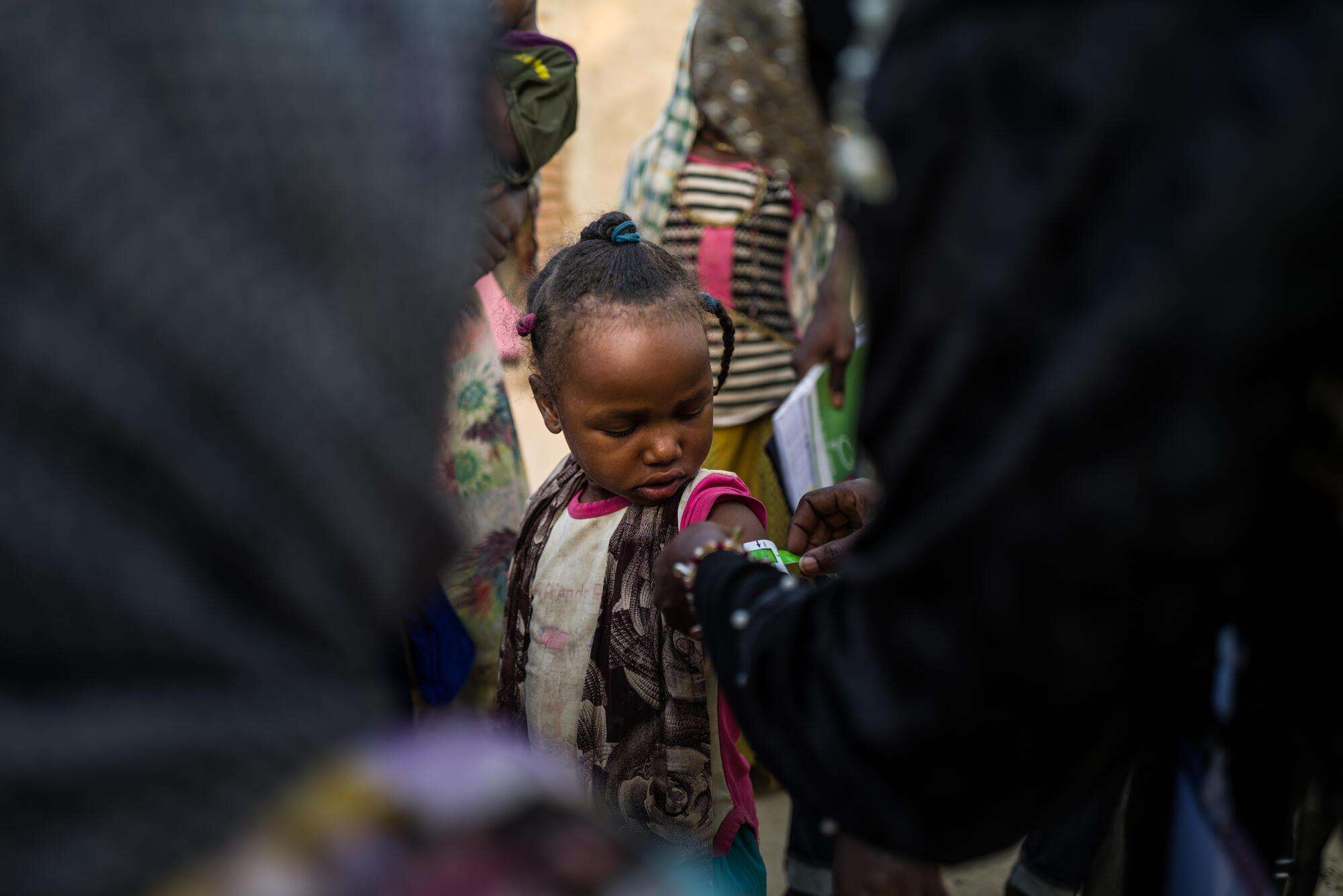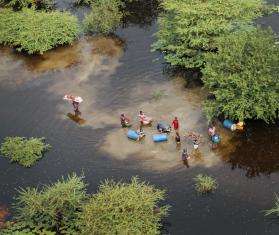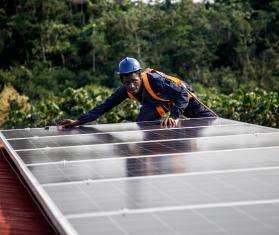Around the world, Doctors Without Borders/Médecins Sans Frontières (MSF) teams see that the communities least responsible for the greenhouse gas emissions causing climate change are those whose lives and health are most impacted. This is the stark reality in Chad, a country straddling Africa’s Sahel region where people are already suffering from chronic health crises made worse by environmental factors. MSF has been working here for more than 40 years in response to regular malnutrition emergencies, repeated epidemics, and some of the highest rates of infant and maternal mortality in the world.
In the last decade, Chad has been losing precious farming and pasture lands to the expanding Saharan desert and Sahelian zone. More than 75 percent of people here live in remote areas and rely on agriculture for their livelihood, making them extremely vulnerable to hotter temperatures and variable rainfalls. These communities now face a lack of water, dwindling harvests, and scarce food supplies. People in Chad already struggle to make it through the annual “hunger gap,” when food stocks from the previous harvest run out. Conditions seem to be going from bad to worse.
“There is some fear that the worst is yet to come, that the hunger gap will start earlier than usual, and that it could be longer and more severe,” said Ibrahim Barrie, MSF’s medical team leader in Hadjer Lamis province, in the southwest. “It’s a continuous crisis. At the same time, funding for nutrition and food security in Chad has gone down. We need a better aid response to prevent children from dying from malnutrition.”
MSF is responding to people’s most critical health needs with therapeutic feeding centers and malnutrition programs in several areas of southern Chad. We also train community health workers, improve access to maternal care, provide pediatric health care, and run seasonal malaria chemoprevention campaigns to reduce the incidence of severe malaria during the rainy season.
Last September, MSF launched a project in Hadjer Lamis after being alerted to high rates of malnutrition. In the first nine months of MSF’s response, our teams treated 15,956 people for severe acute malnutrition. Among them, 837 children were admitted to the inpatient therapeutic feeding center for additional care. Khadidja Iba had to walk for two hours to bring her youngest child, nine-month-old Sara, for follow-up care at MSF’s nutrition program in Massakory, the provincial capital. After an assessment with MSF’s health staff, Khadidja received a week’s supply of Plumpy’Nut, a high-energy peanut paste used to treat malnutrition. She has enough to feed her baby until the next assessment, but she also has five other children to take care of at home.
“There was very little rain last year. It was worse than any year I remember,” said Khadidja. “We harvested hardly anything. We need to buy vegetables at the market, but everything costs almost double now. We don’t have enough to eat.”
On top of existing problems, the war in Ukraine and the disruption of global agricultural exports are contributing to a worsening crisis this year.
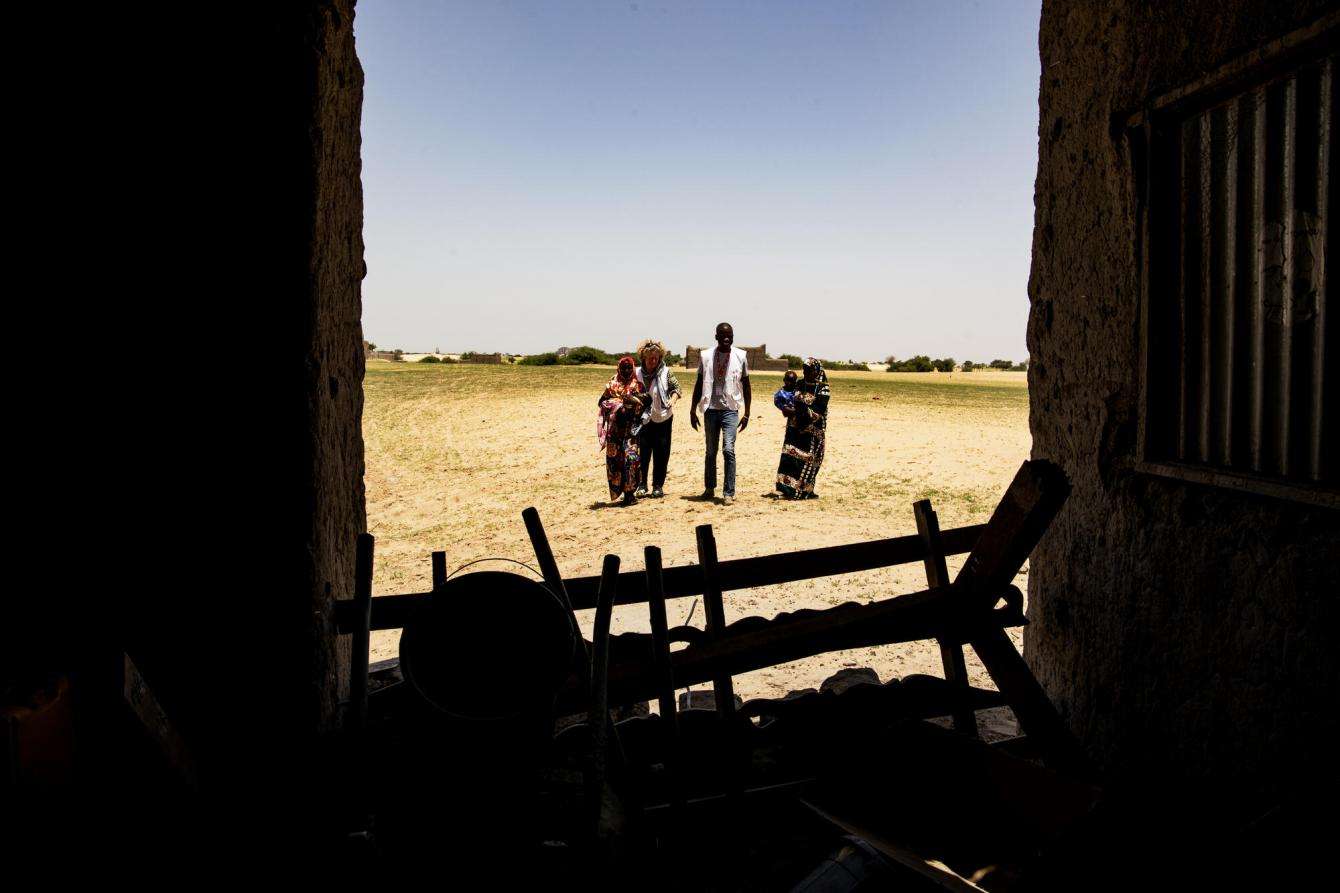
Dwindling resources
Hadjer Lamis sits at the edge of the Lake Chad basin, a site of climate shocks, conflict, and fierce competition over scarce resources. Lake Chad—once one of Africa’s largest lakes and a vital resource shared by Chad, Niger, Nigeria, and Cameroon—has shrunk by 90 percent in the last 60 years.
Experts say climate change and other factors have contributed to drought and depletion of the lake, leaving people without sufficient water for drinking, cooking, washing, and growing crops. Currently, some 11 million people across the Lake Chad region require humanitarian assistance.
International estimates of the impact of climate change and water scarcity are drastically understated. “Chad is just one of the many places in the world where we see that communities with minimal impact on climate change are affected the most by its consequences,” said Dr. Christos Christou, MSF’s international president, who visited the region in August. “As humanitarians we try to help people cope with the very real consequences, but we need to understand the impact the climate emergency has already had on vulnerable communities like those in the Lake Chad basin.”
Local communities also put water at the heart of Chad’s health crisis, pointing to climate change as a driving factor behind the prolonged dry season and shorter rainy season. The rains are not just vital for crops and livestock, but for people who rely on well water for drinking and cooking.
“We are afraid of the future,” says Osman Abakar, who lives in a village near Massakory. “All we can do is wait for the next rains. If the rain abandons us another time, we don’t know what to do.”
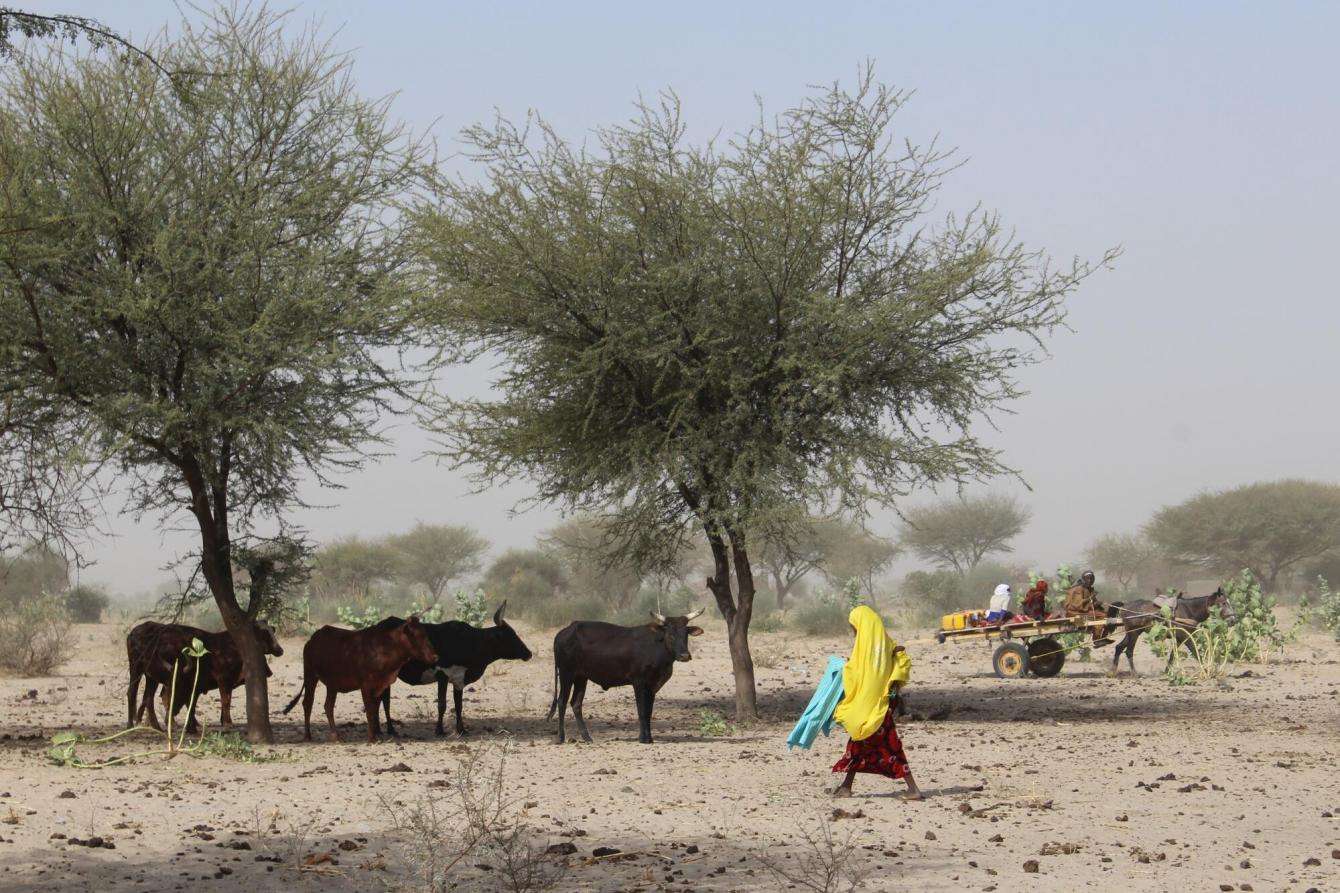
Women face additional challenges
Globally, the climate crisis disproportionately affects people who already face the highest risks, including women and girls. This is obvious in Chad, where the water crisis adds to the myriad challenges confronting women.
Many men have been forced to spend more time away from villages in search of employment, shifting the primary burden of responsibility to women to look after the children, collect water, take care of the land, and find some means of survival. Some men are taking their cattle south, in search of better pastures. This seasonal movement—known as transhumance—is not new but is contributing to conflict between herders and farmers. As MSF has witnessed in many areas around the world, rising conflict puts women and girls at heightened risk of sexual and gender-based violence.
In February, MSF facilitated a focus group discussion with women from Massaguet Urbaine, a village in Hadjer Lamis. Many spoke about the changes they’ve witnessed in recent years. One woman said, “Before, women stayed at home, but with the [water] crisis, even young girls have to go to the market to sell things.” Another woman shared, “When I was young, the rain was sometimes good, sometimes bad, but never like this.”

Climate emergency
An in-depth look at how MSF is responding to environmental crises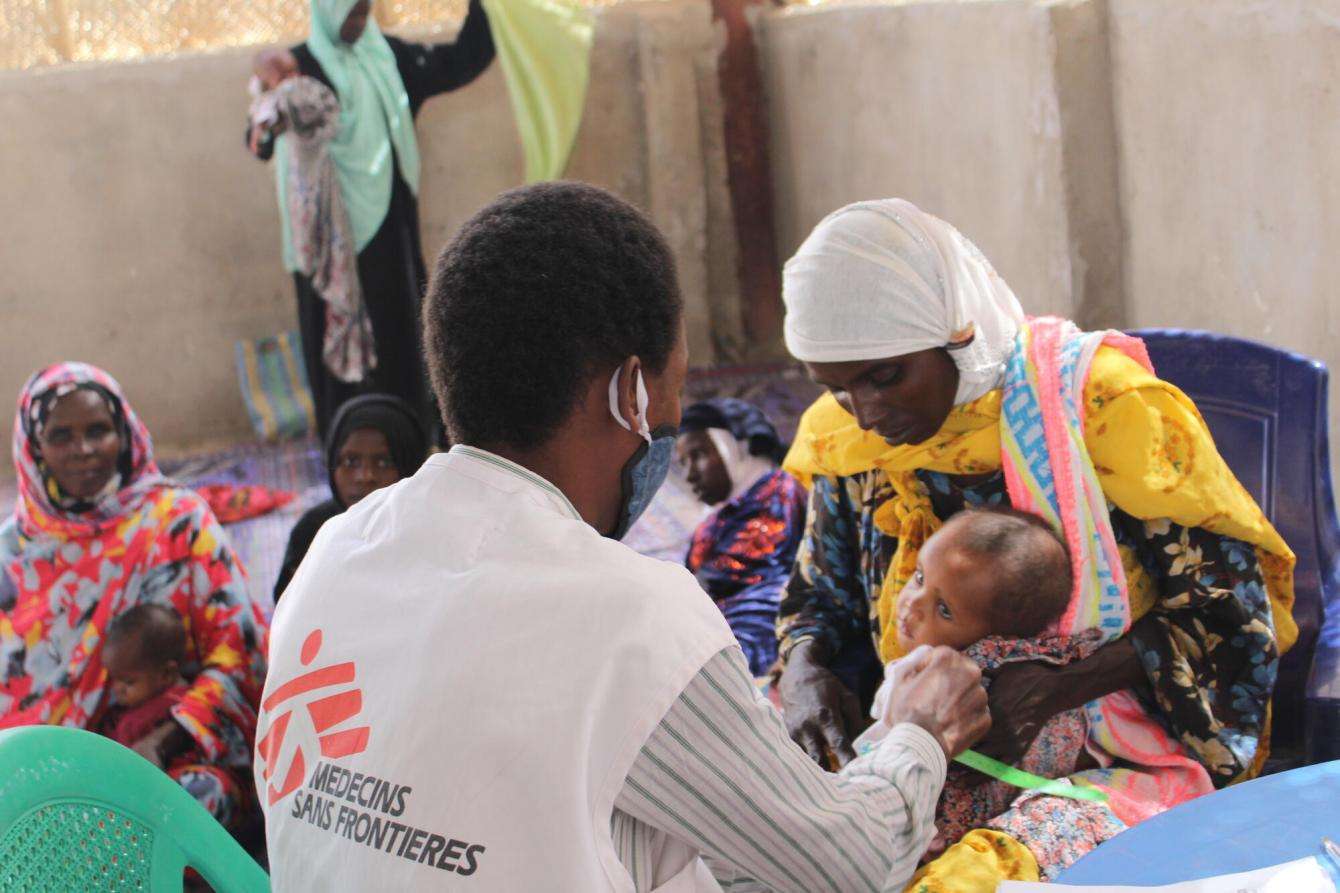
Partnering with communities to build long-term capacity
On the other side of the country, in Chad’s southeastern Sila region, communities are also affected by changing weather patterns. Many of the villages empty out during the dry season, and then can get cut off from health centers during the rainy season due to flooding. Access to clean drinking water remains a huge challenge, and untreated water can lead to many illnesses. “Water is what keeps a population healthy,” said Yahdaibe Katchebe Bienvenu, an MSF water and sanitation expert in Sila. “Potable water is needed to improve the population’s health.”
Following medical and anthropological research, MSF started a pilot project in Sila at the end of 2021, co-designing a health program together with the community. Community members are equal partners in the project and at the heart of all strategic decision-making. MSF is following their guidance to ensure that we contribute to more sustainable health systems that can function even after our teams leave the area. At the request of residents, MSF is training community health workers and providing them with medicines to treat simple illnesses so that care is available closer to home. They can also identify and refer complicated illnesses to other health centers.
As the world’s attention is pulled in the direction of multiple disasters, many donors are diverting funds away from protracted crises, including Chad, and towards newer emergencies, including the war in Ukraine. Several Chadian MSF staff members cited a reduction in humanitarian aid as a contributor to the ongoing water crisis.
“In reality, in certain areas of Chad, there should be no water problems,” said Bienvenu, who was working with the community to assess the most pressing water and sanitation needs in six villages in Sila’s Louboutigue area. “A country’s economic development begins with water.”
Bienvenu’s colleague, Ali Ibrahim—an MSF driver— agreed. “Before there were a lot of [nongovernmental organizations] that led to many changes, like making boreholes, building water towers,” he said. “But when the actors left us, there was no follow up. We were right back where we started. Around the world, we are always standing up to ask the actors if they are listening—that we really need drinking water here in Chad.”
*Several of the stories and photographs featured in this article were collected as part of a community-based project sponsored by the initiative for Humanitarian Action on Climate and Environment, led by MSFCanada. MSF’s team in Chad helped gather artifacts of the climate crisis for an exhibition at the Canadian Museum of Human Rights. “Climate Justice” will be on display and online through June 2024. The exhibit portrays the impacts of the climate crisis and shows how individuals and communities are adapting to the challenges and calling for action.

